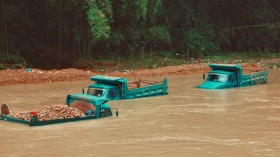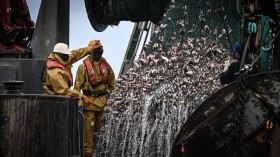On Wednesday, at the UN General Assembly, 22 countries took pledges to take major steps to fight one of the world's most dangerous pollutant emissions. However, were not talking about greenhouse gasses here. Instead, these nations are aiming to address mercury pollution.
In an important United Nations (UN) Treaty Event through the United Nations Environmental Programme (UNEP), a global partnership was launched nearly a year ago between senior government officials from Japan, the United States, and several other world powers under "The Minamata Convention on Mercury."
Since then, hundreds of other countries have signed on to the treaty, with the addition of these 22 new additions bringing the Convention's total number of supporter to 120.
"I congratulate the countries signing and ratifying the Minamata Convention today as they now join the international community's commitment to address a pollutant - mercury - whose impact and notoriety is truly global," Achim Steiner, Under-Secretary-General and Executive Director of UNEP, said in a statement on Wednesday. "Their diversity speaks to the treaty's universal nature and relevance as they encompass both large and small nations, rich and poor, tropical and polar."
The convention was named after a disease and tragedy that struck the Japanese city of Minamata in 1956, when a Chisso Corp factory using mercury as a production catalyst was unknowingly poisoning the local population. The disease results from methymercury poisoning and has killed nearly half of the thousands who have been diagnosed since its discovery.
The disease is best known to result from the consumption of contaminated fish, where concentrations of mercury far exceed levels the human body can naturally filter, leading to widespread neural degradation. Since the tragedy, Japan has worked with the UN to increase awareness about mercury pollution and how it can be detected and prevented.
"As the country that has experienced the Minamata Disease, we recognize our critical role to lead the global challenge to eliminate mercury pollution," added Yoshio Mochizuki, Minister of the Environment of Japan. "We promise to keep supporting the developing countries utilizing our advanced mercury reduction technologies."
© 2024 NatureWorldNews.com All rights reserved. Do not reproduce without permission.




![Great White Sharks Observed for the First Time Changing Their Behavior in Different Marine Environments [Study]](https://1471793142.rsc.cdn77.org/data/thumbs/full/70251/280/157/50/40/great-white-sharks-observed-for-the-first-time-changing-their-behavior-in-different-marine-environments-study.jpg)